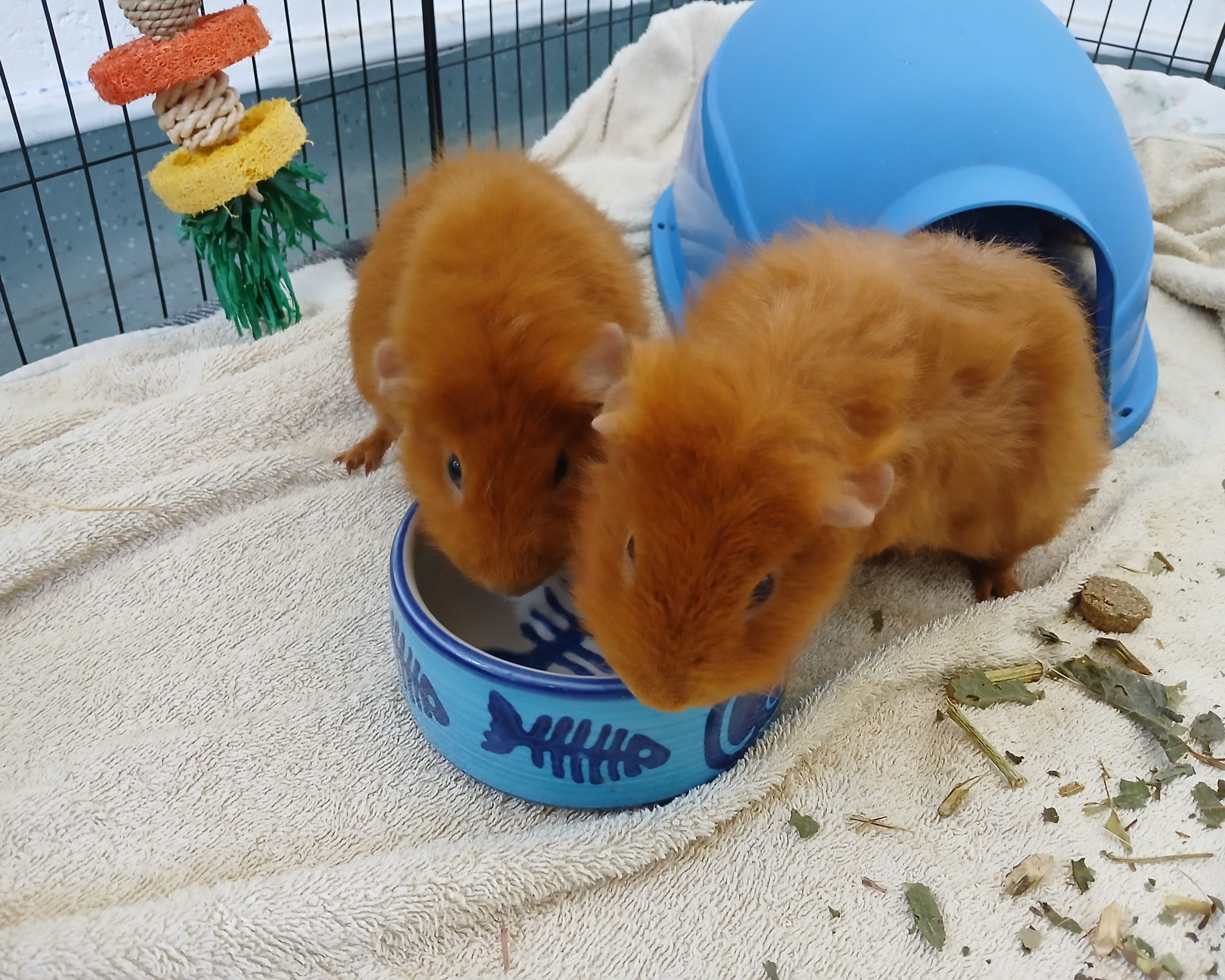As we celebrate Guinea Pig Awareness Week, it’s the perfect time to shine a light on what it truly takes to keep these gentle, chatty little companions happy and healthy.
Whether your guinea pigs live indoors or outside, their comfort and wellbeing depend on thoughtful care, safe housing, and plenty of enrichment to keep their minds and bodies active. From creating the perfect cosy home to understanding their social needs, diet, and health essentials — this guide covers everything you need to know to give your guinea pigs the best life possible.
Outdoor Housing
If your guinea pigs live outside, there are several important factors to consider to keep them safe and comfortable all year round.
Weather extremes: Guinea pigs are highly sensitive to temperature changes. In summer, they need shade and cooling enrichment to prevent overheating, while in winter they require extra warmth, such as a weatherproof thermal hutch cover. Choose a sheltered, wind-protected area for their enclosure, especially during storms. Remember — the larger the accommodation, the more space they have to exercise and keep warm.
Housing: Provide a large, predator- and weather-proof enclosure such as a secure hutch, shed, or wooden wendy house with a sleeping area where they can hide and stay cosy. The minimum size should be 1.5m x 1m. If your enclosure includes a second level, ensure ramps are gentle and have raised sides for safety, as guinea pigs aren’t natural climbers.
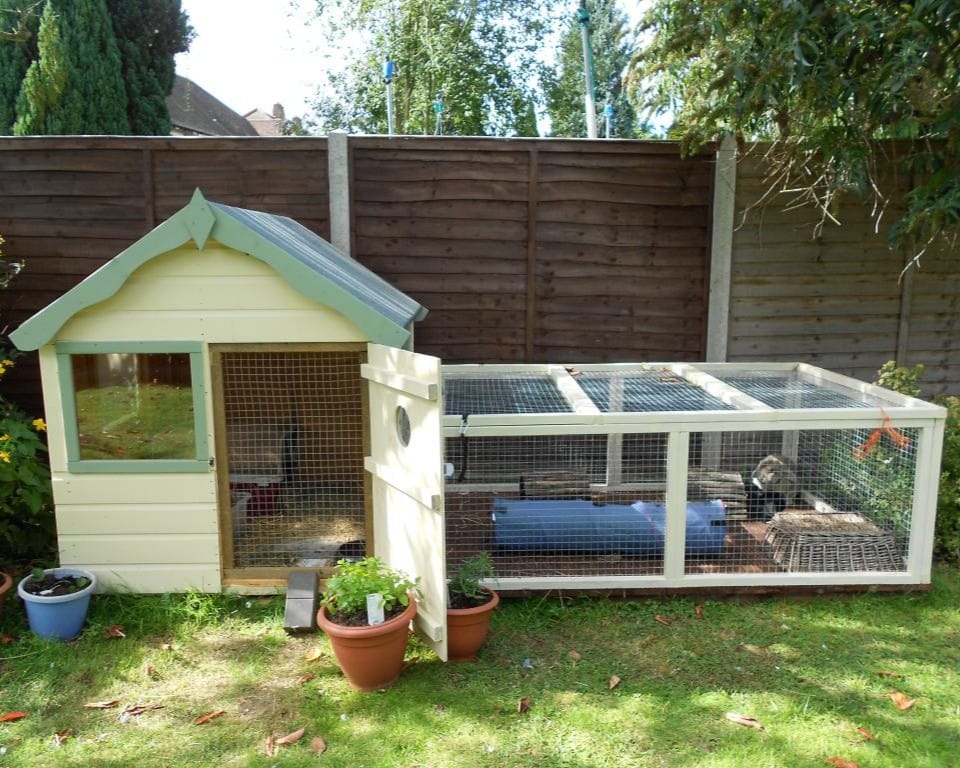
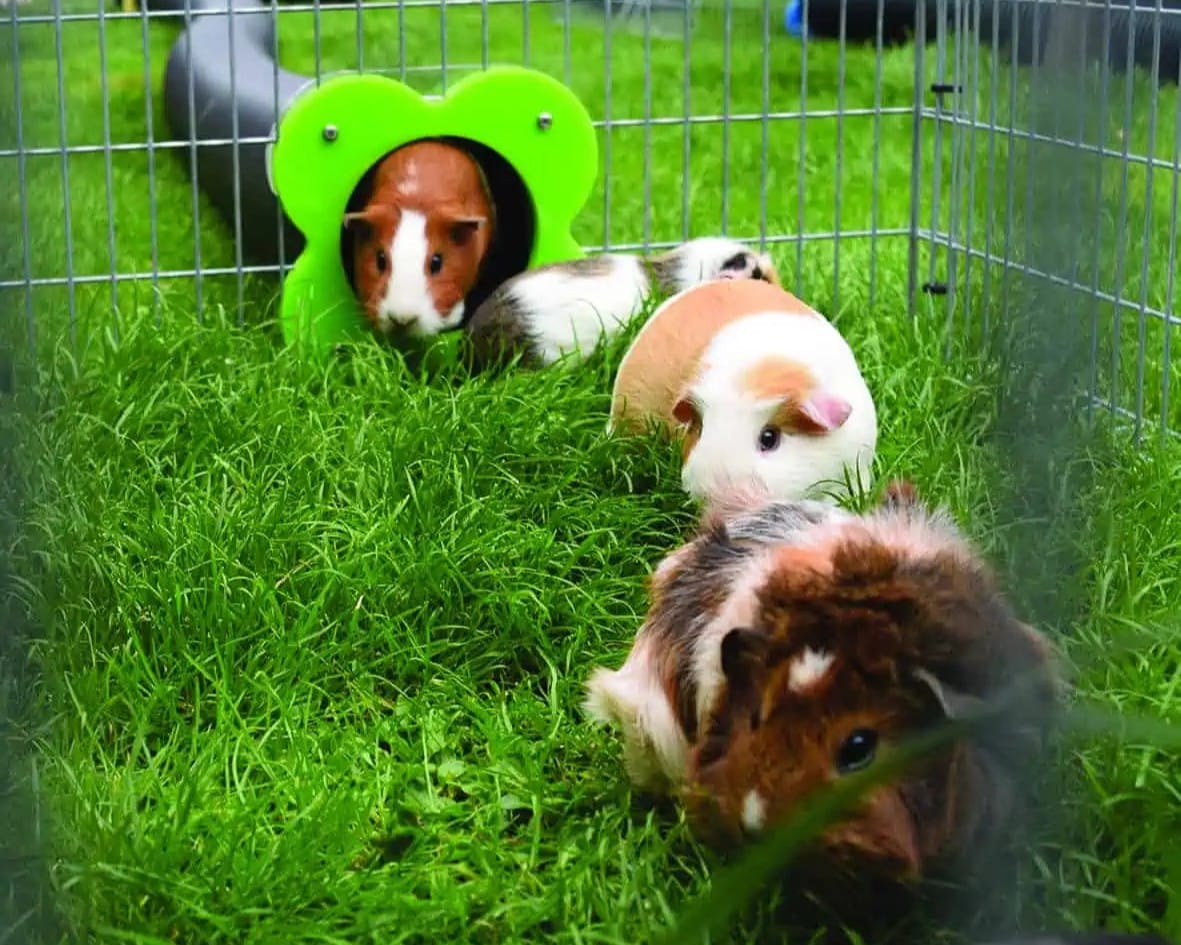
Bedding: Use newspaper and paper-based bedding — avoid wood shavings, sawdust, or straw, as these can cause fungal or respiratory issues. Bedding should be changed daily to maintain hygiene.
Predators: Outdoor guinea pigs are vulnerable to predators like foxes. Ensure their accommodation is fully secure with predator-proof mesh, strong bolts, and buried wire to prevent digging underneath.
Chemicals and plants: Avoid using pesticides in areas accessible to guinea pigs, and always use small-animal-safe disinfectants when cleaning their housing. Be mindful of toxic plants such as poppies, tulips, and daffodils — these should be kept well away. For a full list of unsafe plants and foods, see Woodgreen’s toxic plant guide.
Indoor Housing
Indoor guinea pigs still need plenty of space to thrive.
Housing: An indoor setup should meet the same minimum size (1.5m x 1m) and can include multiple levels if ramps are safe and secure. Suitable options include C&C grids, puppy pens, or even a fully guinea pig-proofed room. Ensure flooring is non-slip to prevent injury.
Safety and bedding: Guinea pigs need hides, tunnels, and piles of hay to explore. Fleece bedding, blankets, and towels are ideal as they’re soft on their feet — but they must be cleaned daily. Always use small-animal-safe disinfectant and keep the space hazard-free (especially from chewing wires).
Location: Choose a calm, quiet area away from other pets and direct heat sources like radiators. The ideal temperature range is 17–20°C.
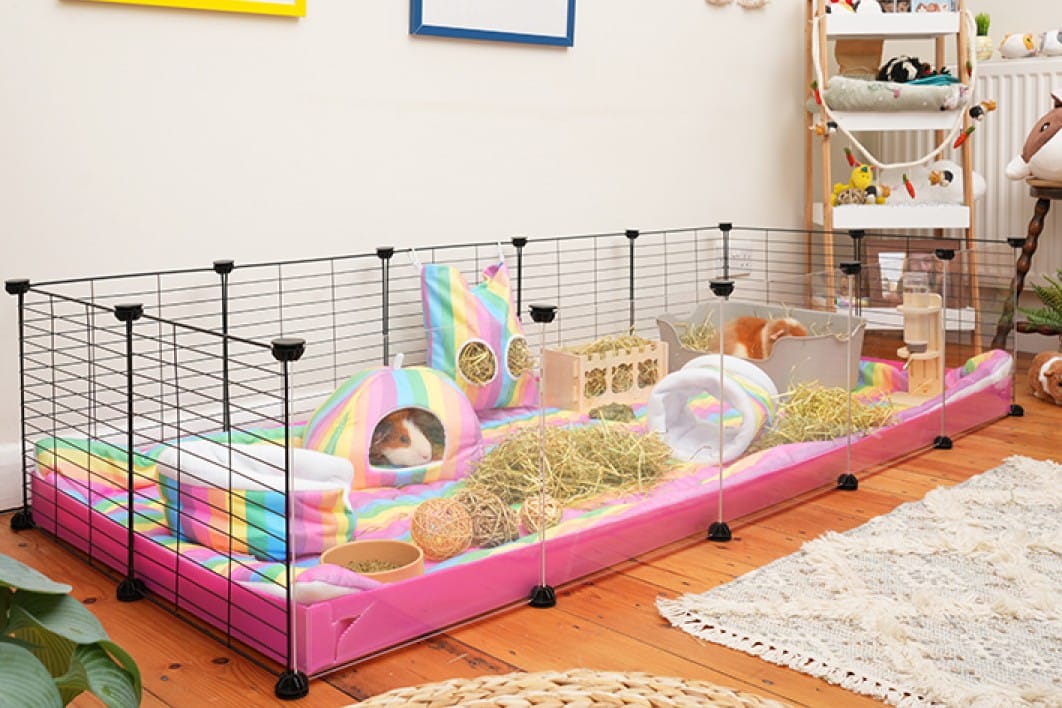
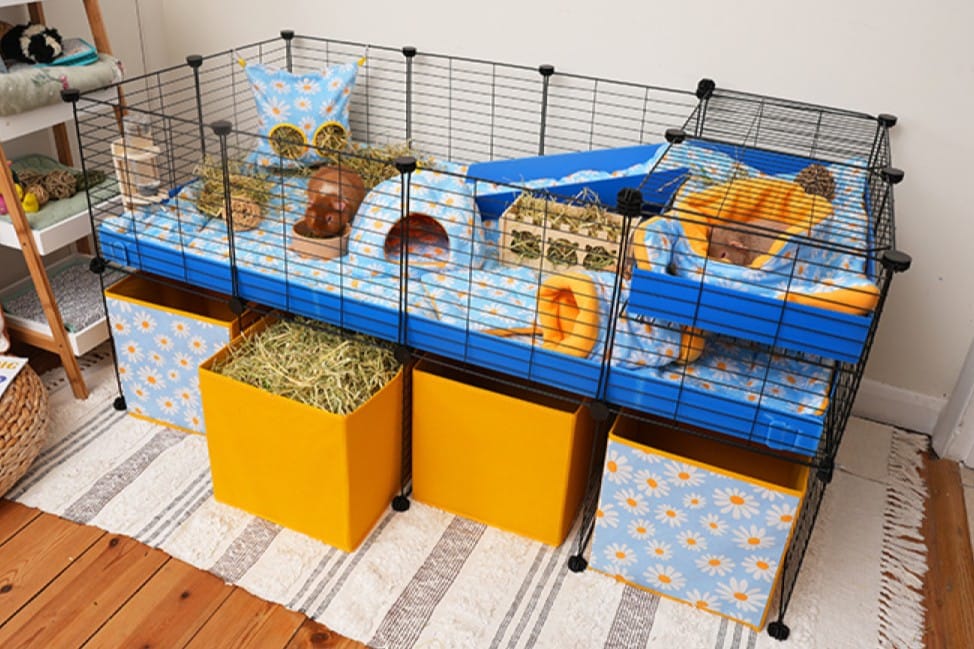
Enrichment
Enrichment is essential for keeping guinea pigs mentally and physically stimulated. Try ideas from the Guinea Pig Alliance, such as:
- Hay kebabs and forage trees: Stuff cardboard tubes with hay and herbs, thread them onto sticks, and place them in a box for foraging fun.
- Forage bags: Fill paper bags with hay and dried herbs — just remember to remove the handles.
- Stick bundles: Tie apple or willow sticks together with twine for a natural chew toy.
- Plant pots and mock hedges: Fill with hay and forage to encourage natural grazing behaviour.
- Herb planters: Grow guinea pig-safe herbs like mint and lemon balm.
- Gnawing twigs and toys: Provide untreated apple or willow branches to help keep teeth healthy.
Other enrichment ideas include snuffle mats, treat balls, and tunnels — the more variety, the better!
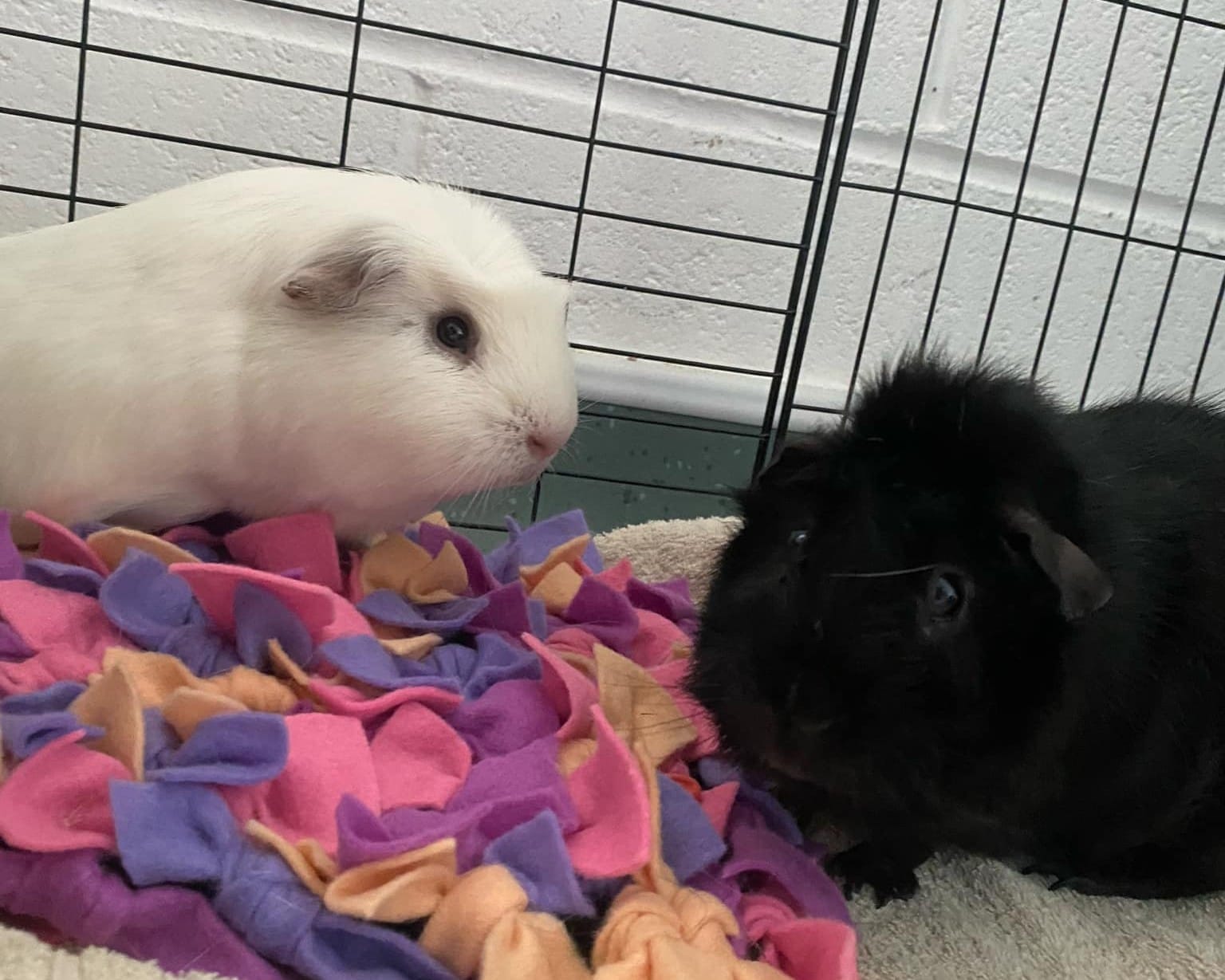
Diet and Nutrition
Guinea pigs are herbivores and require a diet high in fibre and rich in vitamin C, as they cannot produce it themselves.
Their diet should include:
- 85% hay
- 10% fresh vegetables
- 5% high-quality nuggets or pellets (avoid muesli)
They also re-ingest some of their own droppings (a normal behaviour called coprophagy) to absorb extra nutrients.
Safe vegetables: parsley, celery, peppers, cucumber, gem or romaine lettuce.
Occasional treats: broccoli, kale, spinach, small pieces of carrot or apple.
Avoid: iceberg lettuce, mushrooms, potatoes, avocado, onions, garlic, citrus fruits, nuts, seeds, and coconut.
Visit the RSPCA website to find out more about safe and unsafe foods for piggies.
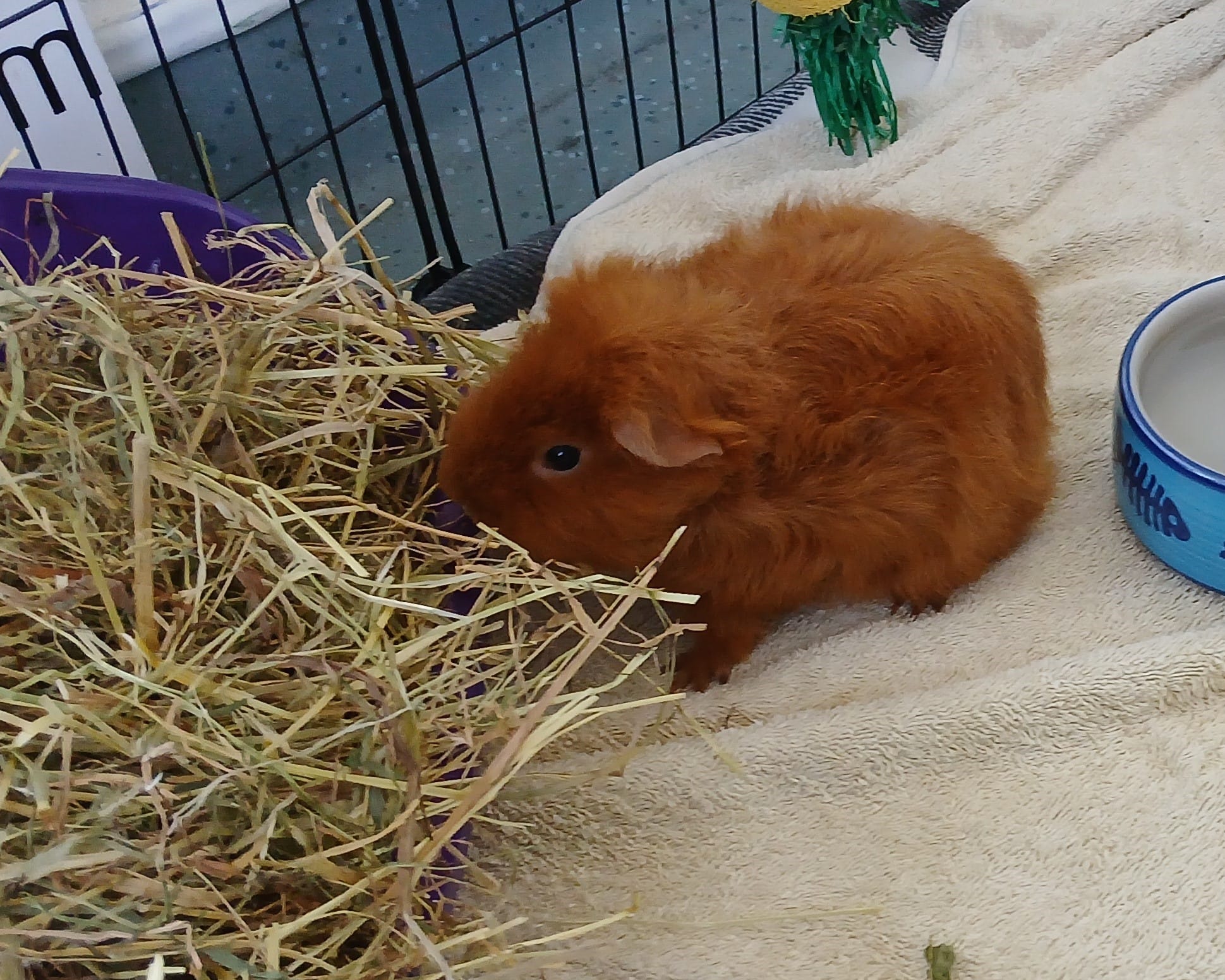
Health and Vet Care
Common health issues:
- GI stasis: A life-threatening emergency where guinea pigs stop eating and defecating.
- Dental disease: Caused by insufficient hay or lack of chewing opportunities.
- Pododermatitis: Pressure sores from unsuitable flooring or bedding.
- Vitamin C deficiency (Scurvy): Leads to lethargy, weakness, and sores.
- Parasites: Fleas and mites can cause itching, hair loss, and sores.
- Ringworm: Fungal infection causing bald patches and crusty skin.
Vet visits: Guinea pigs need annual health checks (every 6 months for seniors). They don’t require vaccinations but benefit from regular monitoring. When travelling to the vet, provide a hide in their carrier and, if bonded, take both guinea pigs together for comfort. A calming spray like Pet Remedy can help ease anxiety during transport.
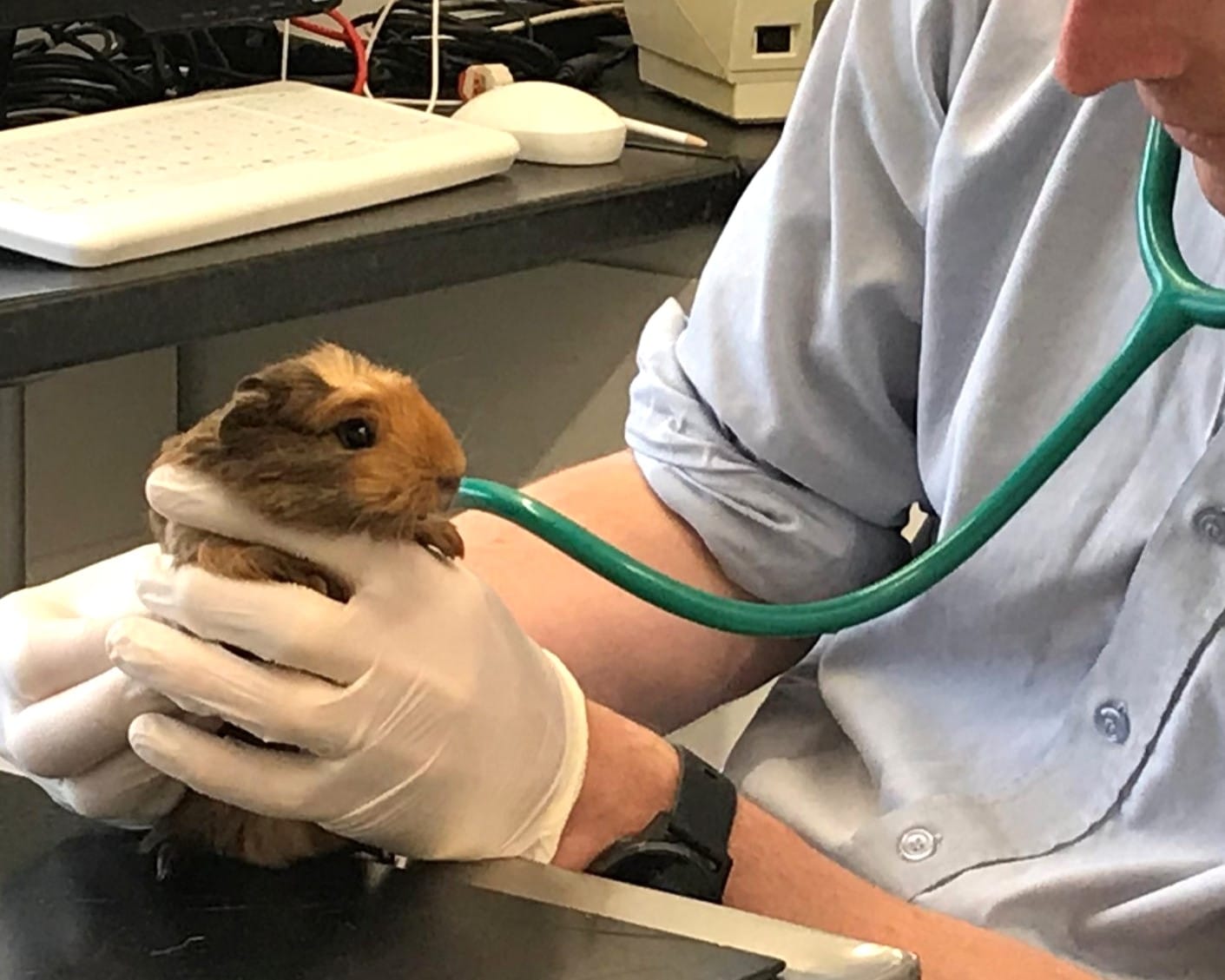
Companionship and Bonding
Guinea pigs are social animals who thrive in company. Females can live in pairs or small groups, while males usually do best in pairs. Companionship allows them to display natural behaviours and reduces loneliness.
Bonding tips:
- Start with side-by-side pens so they can see and smell each other.
- Swap them between pens daily to get used to each other’s scent.
- Introduce them on neutral territory with fresh hay, tunnels, and hides.
- Watch for positive signs (eating together, gentle squeaks, grooming).
- Separate immediately if there’s aggression or injury.
Bonding takes time and patience — don’t rush it, and always monitor interactions closely.
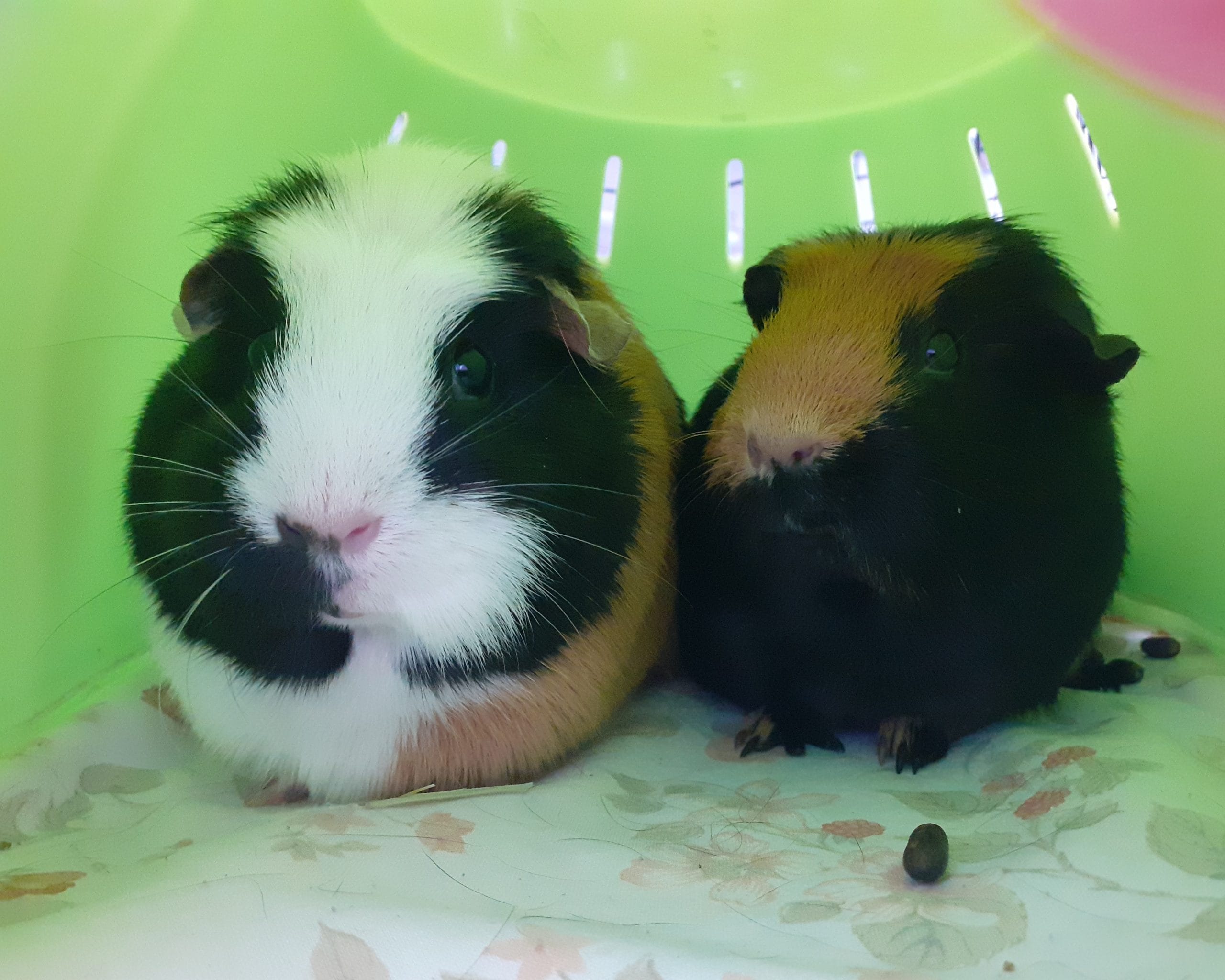
Final Thoughts
Caring for guinea pigs takes commitment, space, and attention to detail — but their gentle personalities and playful nature make it all worthwhile. By understanding their needs and providing the right environment, enrichment, and companionship, you’ll help your guinea pigs live long, healthy, and happy lives.

